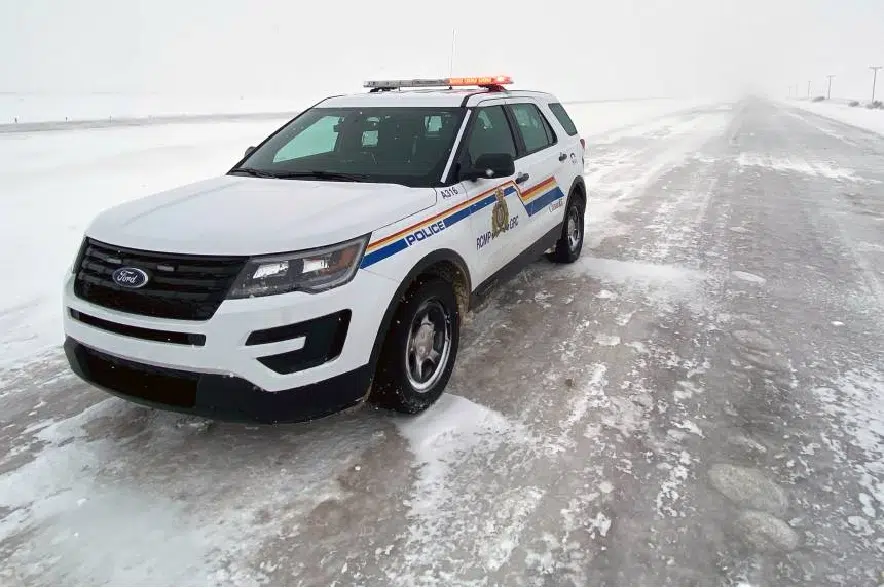The RCMP is expressing concern after the number of fatal collisions on Saskatchewan roads “increased exponentially in recent weeks.”
According to the Mounties, between Sept. 1 and Wednesday, there were 22 fatal collisions on the province’s highways, leading to 26 deaths in the jurisdiction of the Saskatchewan RCMP. Those deaths included 14 drivers, nine passengers and three pedestrians.
“Yes, the number of fatal collisions increased exponentially in recent weeks and yes, we are concerned,” Supt. Grant St. Germaine, who leads Saskatchewan RCMP Traffic Services, said in a statement.
“The fatal collisions geographically occurred all throughout the province. There is no one ‘hot spot’ or mitigating factor, making it challenging to provide a specific overall contributing cause.”
St. Germaine said the deaths in September and October represent “a dramatic increase” over the 36 fatal collisions and 38 deaths that occurred between the start of 2023 and the end of August.
On Tuesday, a 32-year-old Regina woman was killed in a crash near Kronau. The very next day, a 37-year-old man was killed in a crash on Highway 39 northwest of Estevan.
According to the RCMP, between Sept. 1 and Wednesday, the province averaged one fatal crash every 2.5 days.
While St. Germaine couldn’t point to an overall cause, impairment is considered a cause or factor in 17 of 2023’s 58 fatal collisions, the RCMP said, adding that several investigations into fatal collisions this year are still ongoing.
“Most investigations from between September 1, 2023 to date are not yet complete. Some investigations may never result in charges,” the RCMP noted.
Last year, the Saskatchewan RCMP logged 65 fatal collisions that led to 79 deaths. Fatal crashes in 2021 totalled 73, but the number of deaths was the same as 2022 at 79. In 2020, 80 people died as the result of 71 fatal crashes.
The Mounties noted those numbers only apply to public roads that are not in the jurisdiction of other Saskatchewan police forces.
Fatal collisions, the RCMP noted, often require lengthy and detailed investigation. According to the Mounties, the Saskatchewan RCMP’s collision reconstruction experts – which include five full-time and five part-time employees – have logged more than 13,000 kilometres as they have gone about their duties since Sept. 1.
“We may be battling adverse weather just to get to a scene – snow, rain, icy roads and more,” explained Sgt. Jeff Burnett, one of the RCMP’s reconstruction experts.
“After we arrive, it generally takes four to six hours to gather evidence, with the time dramatically increasing based on investigational complexity. This can mean road closures last for many hours for critical scene processing.”
St. Germaine said fatal crashes have an impact on police officers, who are sometimes required to inform surviving relatives about a death.
“Recognizing there are a multitude of factors related to fatal collisions, our message is to please drive safe on our roads. We want everyone to get home safe,” St. Germaine said.











